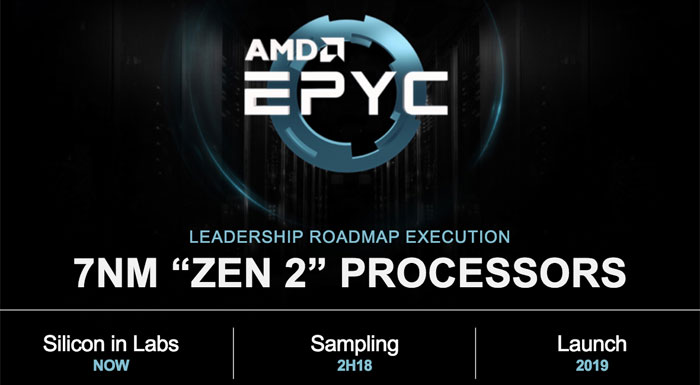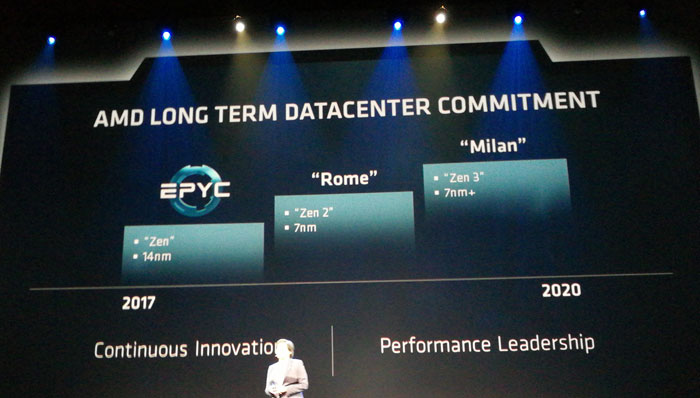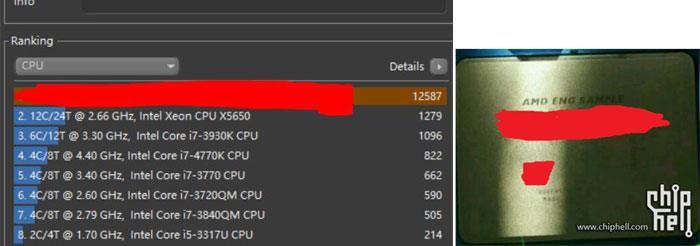In late July AMD confirmed that it was sampling its next generation 7nm EPYC processors, codenamed 'Rome'. AMD's upcoming EPYC processors, based upon 'Zen 2' cores, are destined to take multi-core performance to another level. AMD says that the 7nm 'Zen 2' EPYC chips won't launch until 2019, however the company will be launching its first 7nm Vega GPUs later this year.

EPYC workstation and server processors are in direct competition with Intel Xeon parts and have been helping AMD penetrate and reap rewards from this lucrative market. PC enthusiasts should take note too, as it is thought that AMD Threadripper parts are based around EPYC, for economies of scale and development reasons.

Back to the news of the day, and a Chiphell forum member has posted purported Cinebench benchmarks for a 64C/128T AMD EPYC processor. As you can see in the photo below, this is an 'Eng(ineering) Sample', which must have somehow got squirreled away from an enterprise/corporate customer into an enthusiast's hands. The score is rather impressive at 12587cb. In the table you can see this score puts serious shade on the competition. A much closer unlisted competitor is the stock Ryzen Threadripper 2990WX (32C/64T) at 5500cb, and this chip has been pushed to its extremes to achieve 8543cb on LN2.

As well as the doubling of cores compared to the Ryzen Threadripper 2990WX, the new EPYC processors are thought to benefit performance wise thanks to architectural optimisations, clock speed improvements, and support for octa-channel memory.
Intel isn't expected to have a 10nm reply to the AMD 'Rome' processors until sometime in 2020.













